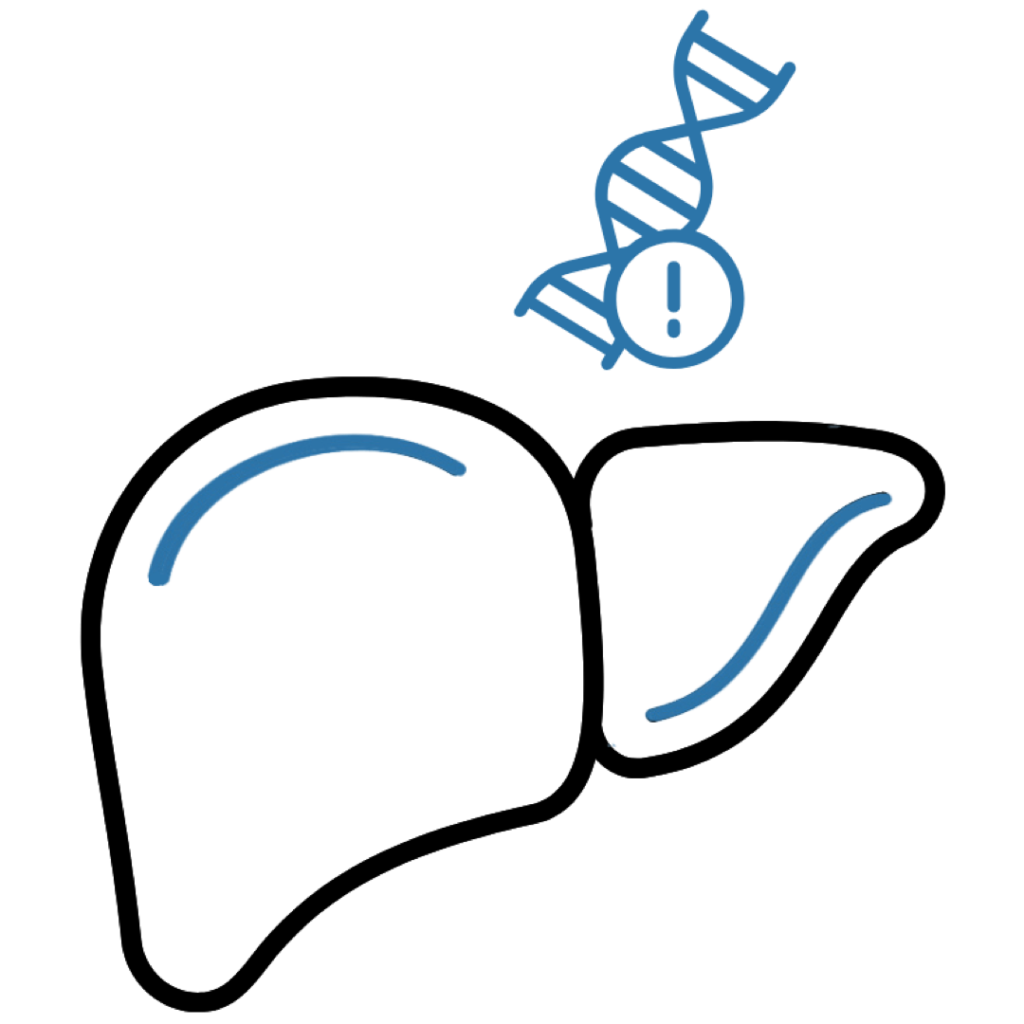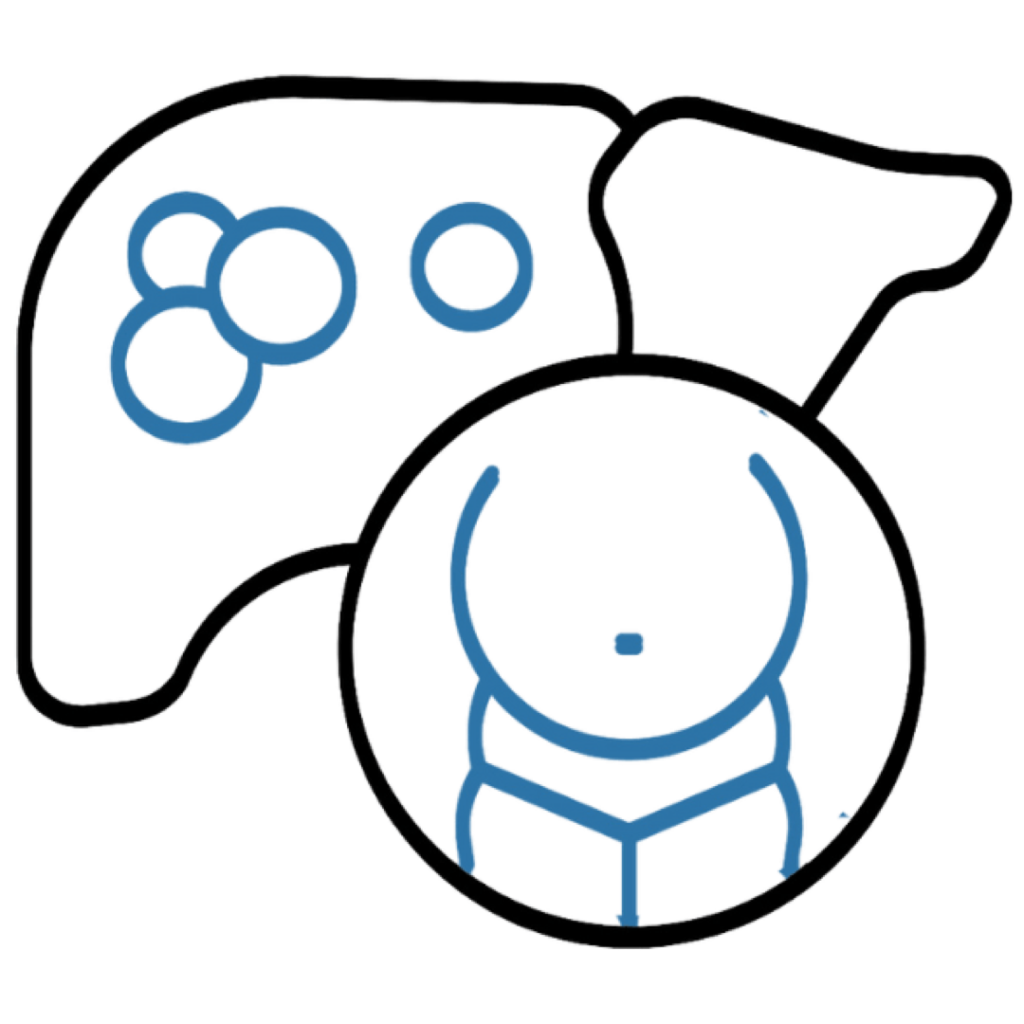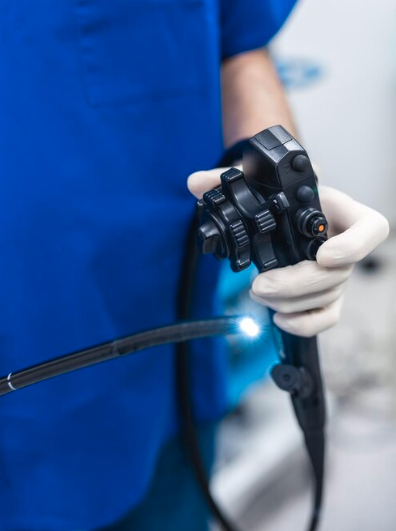Home » Bile Duct Cancer
Bile Duct Cancer Treatment in Singapore

Dr Thng Yongxian
Hepatopancreatobiliary & General Surgeon
MBBS • MMed • MRCS (IRE) • FRCSED • FAMS
What is Bile Duct Cancer?
Bile duct cancer, also known as cholangiocarcinoma, is a rare form of cancer that arises in the bile ducts. These ducts are slender tubes that connect the liver, gallbladder, and small intestine, playing a crucial role in digestion by transporting bile, a fluid produced by the liver that helps digest fats.
This type of cancer is categorised based on its location within the bile duct system:
-
Intrahepatic: This type of bile duct cancer forms in the bile ducts located entirely within the liver. It may be challenging for a doctor to diagnose due to its position deep within the liver tissue.
-
Perihilar (Klatskin tumors): These tumors develop at the hilum, the specific area where the bile ducts merge as they exit the liver.
- Distal (Extrahepatic): These cancers develop in the bile ducts situated outside the liver, closer to the pancreas and small intestine.
Bile Duct Cancer Causes
There are multiple factors that may contribute to bile duct cancer in Singapore.

Primary sclerosing cholangitis (PSC)

Liver fluke infection

Chronic biliary inflammation

Bile duct cysts (choledochal cysts)

Cirrhosis and hepatitis B/C

Age, gender, and exposure to toxin
Bile Duct Cancer Symptoms
-
Jaundice (yellowing of skin/eyes)
A condition characterised by yellowing of the skin and eyes, resulting from the buildup of bilirubin, a byproduct of old red blood cells. Jaundice treatment in Singapore is readily available.
-
Dark urine and pale stools
Pale or clay-coloured stools and dark urine result from bile secretion changes.
-
Itching (pruritus)
Severe itching is a common symptom, often due to the accumulation of bile salts in the skin.
-
Fatigue and weight loss
Unintentional weight loss and a reduced desire to eat that are not associated with dieting.
-
Abdominal Pain
Pain in the upper right area of the abdomen may indicate the cancer’s growth or spread.
-
Fever (if cholangitis is present)
A doctor may consider fever a symptom of bile duct cancer if the patient has an existing cholangitis infection.
Bile Duct Cancer Diagnosis
A doctor may order one or more of these diagnostic procedures to check for bile duct cancer.

Blood Tests
Blood tests are often utilised to assess liver function and identify tumor markers that may indicate the presence of bile duct cancer.
- Liver function tests (bilirubin, ALP, GGT)
- Tumor markers: CA 19-9, CEA

Imaging Tests
Imaging tests play a crucial role in diagnosing bile duct cancer, helping to visualise the bile ducts, liver, and surrounding tissues.
- Ultrasound
- Computed Tomography (CT) Scan
- Magnetic Resonance Imaging (MRI)
- Positron Emission Tomograph (PET)

Endoscopy
Endoscopic procedures allow for direct visualisation of the bile ducts and surrounding structures, assisting in the diagnosis of bile duct cancer.
- Endoscopic Retrograde Cholangiopancreatography (ERCP)
- Endoscopic Ultrasound (EUS)

Biopsy
A biopsy, removing a small tissue sample for examination under a microscope, is the definitive way for a doctor to diagnose bile duct cancer.
Get an Accurate Diagnosis & Specialised Treatment For Bile Duct Cancer
For an accurate diagnosis and bile duct cancer surgery in Singapore, consult our fellowship-trained bile duct cancer surgeon today.
Treatment Options
Treatment for bile duct cancer depends on the cancer’s location, stage, and the patient’s overall health.
Surgery
-
Liver resection for intrahepatic cholangiocarcinoma: A bile duct cancer surgeon may consider the removal of the portion of the liver that contains the tumor. The extent of the resection depends on the tumor's size and location within the liver.
-
Bile duct excision with reconstruction (Roux-en-Y hepaticojejunostomy): This surgery involves removing the cancerous segment of the bile duct. The remaining bile duct is then reconnected to the small intestine using a Roux-en-Y hepaticojejunostomy to restore bile flow.
-
Whipple surgery for distal bile duct cancer: Whipple surgery may be an option for bile duct cancer patients in Singapore. It is a complex procedure performed by a hepatobiliary specialist that removes the head of the pancreas, the duodenum, the gallbladder, and part of the bile duct, followed by reconstruction.
-
Liver transplantation (select cases): In selected cases, especially for certain intrahepatic cholangiocarcinomas, a liver transplant might be an option.
Radiation Therapy
Radiation therapy uses high-energy rays to target and kill cancer cells. It may be used:
- As a primary treatment when surgery is not an option.
- After surgery to eliminate any remaining cancer cells.
- To relieve symptoms of advanced cancer.
Chemotherapy
Chemotherapy involves the use of drugs to kill cancer cells, usually administered through the bloodstream to reach cancer cells throughout the body. It may be used:
- Before surgery, to shrink tumours, making them easier to remove.
- After surgery, to kill any cancer cells that might remain.
- As the main treatment when surgery is not suitable.
Palliative Care
For advanced bile duct cancer, the focus may shift to palliative care, aimed at relieving symptoms and improving quality of life.
- Biliary drainage to relieve jaundice caused by blocked bile ducts.
- Pain management through medications.
- Nutritional support to address weight loss and appetite issues.
Targeted Therapy and Immunotherapy
Recent advances in treatment include targeted therapy and immunotherapy, which may be options for some patients based on the cancer’s specific genetic markers.

Dr Thng Yongxian
Senior Consultant
HEPATOPANCREATOBILIARY & GENERAL SURGEON
MBBS (SG) • MMed (Surg) • MRCS (Ire) • FRCSEd (Gen) • FAMS (Surg)
Dr Thng Yongxian is a dual fellowship-trained Hepatopancreatobiliary & General Surgeon who has performed over 6000 surgical procedures.
- Bachelor of Medicine & Bachelor of Surgery
- National University of Singapore
- Membership of the Royal College of Surgeons, Ireland
- Master of Medicine, General Surgery, Singapore
- Fellow of the Royal College of Surgeons, Edinburgh
- Fellow of the Academy of Medicine, Singapore
He pursued his subspecialty training in Hepatopancreatobiliary surgery first in the Department of Hepatopancreatobiliary Surgery, Singapore General Hospital. Following this, he completed a clinical fellowship in Minimally Invasive Hepatopancreatobiliary Surgery at Seoul National University Hospital in Bundang, South Korea.
Dr Thng set up and pioneered the Minimally invasive surgery program for his hospital in complex liver and pancreas cases. His surgeries were featured on live national television. His surgical videos have also been presented at international surgical conferences. He also pioneered the use of capsule colonoscopy for colorectal screening.
Dr Thng has served on various committees at hospital, cluster and ministry level. Dr Thng served as a member of the Ministry of Health (MOH) Laparoscopic cholecystectomy Clinician workgroup for value-driven care (VDC).
Frequently Asked Questions About Bile Duct Cancer Treatment in Singapore
What are the early warning signs of bile duct cancer?
Who is at higher risk of getting bile duct cancer?
Is a biopsy always necessary to confirm bile duct cancer?
What is the prognosis for patients with bile duct cancer?
Can chemotherapy or radiation replace surgery?
Related Biliary Treatments
Besides bile duct cancer, Dr Thng provides a range of biliary treatments in Singapore, managing conditions affecting the liver, pancreas, gallbladder, and bile ducts.
Corporate & Personal Insurance Plans
Clinic Locations
Nexus Surgical @ Mt. Alvernia
- 820 Thomson Road #06-05, Singapore 574623
- (65) 9838 5827
- (65) 9838 5827
-
Mondays to Fridays: 9.00am - 5.00pm
(Lunch: 1:00pm - 2:00pm)
Saturdays: 9.00am - 1.00pm
Sundays & PH: Closed
Nexus Surgical @ Mt. Elizabeth Orchard
- 3 Mount Elizabeth, #08-06, Singapore 228510
- (65) 9838 5827
- (65) 9838 5827
-
Mondays to Fridays: 9.00am - 5.00pm
(Lunch: 1:00pm - 2:00pm)
Saturdays: 9.00am - 1.00pm
Sundays & PH: Closed
Nexus Surgical @ Mt. Elizabeth Novena
- 38 Irrawaddy Road, #08-43, Singapore 329563
- (65) 9838 5827
- (65) 9838 5827
-
Mondays to Fridays: 9.00am - 5.00pm
(Lunch: 1:00pm - 2:00pm)
Saturdays: 9.00am - 1.00pm
Sundays & PH: Closed
Nexus Surgical @ Parkway East
- 319 Joo Chiat Place, #05-01, Singapore 427989
- (65) 9838 5827
- (65) 9838 5827
-
Mondays to Fridays: 9.00am - 5.00pm
(Lunch: 1:00pm - 2:00pm)
Saturday, Sunday & PH: Closed
Nexus Surgical @ Gleneagles Medical Centre
- 6 Napier Road, #05-10, Singapore 258499
- (65) 9838 5827
- (65) 9838 5827
-
Mondays to Fridays: 9.00am - 5.00pm
(Lunch: 1:00pm - 2:00pm)
Saturdays: 9.00am - 1.00pm
Sundays & PH: Closed
Nexus Surgical @ Mt. Alvernia
- 820 Thomson Road #06-05, Singapore 574623
- yongxian.thng@nexussurgical.sg
- (65) 9838 5827
- (65) 9838 5827
-
Mondays to Fridays: 9.00am - 5.00pm
(Lunch: 1:00pm - 2:00pm)
Saturdays: 9.00am - 1.00pm
Sundays & PH: Closed
Nexus Surgical @ Mt. Elizabeth Orchard
- 3 Mount Elizabeth, #08-06, Singapore 228510
- yongxian.thng@nexussurgical.sg
- (65) 9838 5827
- (65) 9838 5827
-
Mondays to Fridays: 9.00am - 5.00pm
(Lunch: 1:00pm - 2:00pm)
Saturdays: 9.00am - 1.00pm
Sundays & PH: Closed
Nexus Surgical @ Mt. Elizabeth Novena
- 38 Irrawaddy Road, #08-43, Singapore 329563
- yongxian.thng@nexussurgical.sg
- (65) 9838 5827
- (65) 9838 5827
-
Mondays to Fridays: 9.00am - 5.00pm
(Lunch: 1:00pm - 2:00pm)
Saturdays: 9.00am - 1.00pm
Sundays & PH: Closed
Nexus Surgical @ Parkway East
- 319 Joo Chiat Place, #05-01, Singapore 427989
- yongxian.thng@nexussurgical.sg
- (65) 9838 5827
- (65) 9838 5827
-
Mondays to Fridays: 9.00am - 5.00pm
(Lunch: 1:00pm - 2:00pm)
Saturday, Sunday & PH: Closed
Nexus Surgical @ Gleneagles Medical Centre
- 6 Napier Road, #05-10, Singapore 258499
- yongxian.thng@nexussurgical.sg
- (65) 9838 5827
- (65) 9838 5827
-
Mondays to Fridays: 9.00am - 5.00pm
(Lunch: 1:00pm - 2:00pm)
Saturdays: 9.00am - 1.00pm
Sundays & PH: Closed
Nexus Surgical @ Mt. Alvernia
- 820 Thomson Road #06-05, Singapore 574623
- yongxian.thng@nexussurgical.sg
- (65) 9838 5827
- (65) 9838 5827
-
Mondays to Fridays: 9.00am - 5.00pm
(Lunch: 1:00pm - 2:00pm)
Saturdays: 9.00am - 1.00pm
Sundays & PH: Closed
Nexus Surgical @ Mt. Elizabeth Orchard
- 3 Mount Elizabeth, #08-06, Singapore 228510
- yongxian.thng@nexussurgical.sg
- (65) 9838 5827
- (65) 9838 5827
-
Mondays to Fridays: 9.00am - 5.00pm
(Lunch: 1:00pm - 2:00pm)
Saturdays: 9.00am - 1.00pm
Sundays & PH: Closed
Nexus Surgical @ Mt. Elizabeth Novena
- 38 Irrawaddy Road, #08-43, Singapore 329563
- yongxian.thng@nexussurgical.sg
- (65) 9838 5827
- (65) 9838 5827
-
Mondays to Fridays: 9.00am - 5.00pm
(Lunch: 1:00pm - 2:00pm)
Saturdays: 9.00am - 1.00pm
Sundays & PH: Closed
Nexus Surgical @ Parkway East
- 319 Joo Chiat Place, #05-01, Singapore 427989
- yongxian.thng@nexussurgical.sg
- (65) 9838 5827
- (65) 9838 5827
-
Mondays to Fridays: 9.00am - 5.00pm
(Lunch: 1:00pm - 2:00pm)
Saturday, Sunday & PH: Closed
Nexus Surgical @ Gleneagles Medical Centre
- 6 Napier Road, #05-10, Singapore 258499
- yongxian.thng@nexussurgical.sg
- (65) 9838 5827
- (65) 9838 5827
-
Mondays to Fridays: 9.00am - 5.00pm
(Lunch: 1:00pm - 2:00pm)
Saturdays: 9.00am - 1.00pm
Sundays & PH: Closed
Need Help Navigating Your Health?
If you’re experiencing symptoms or want to understand your treatment options, contact us today.